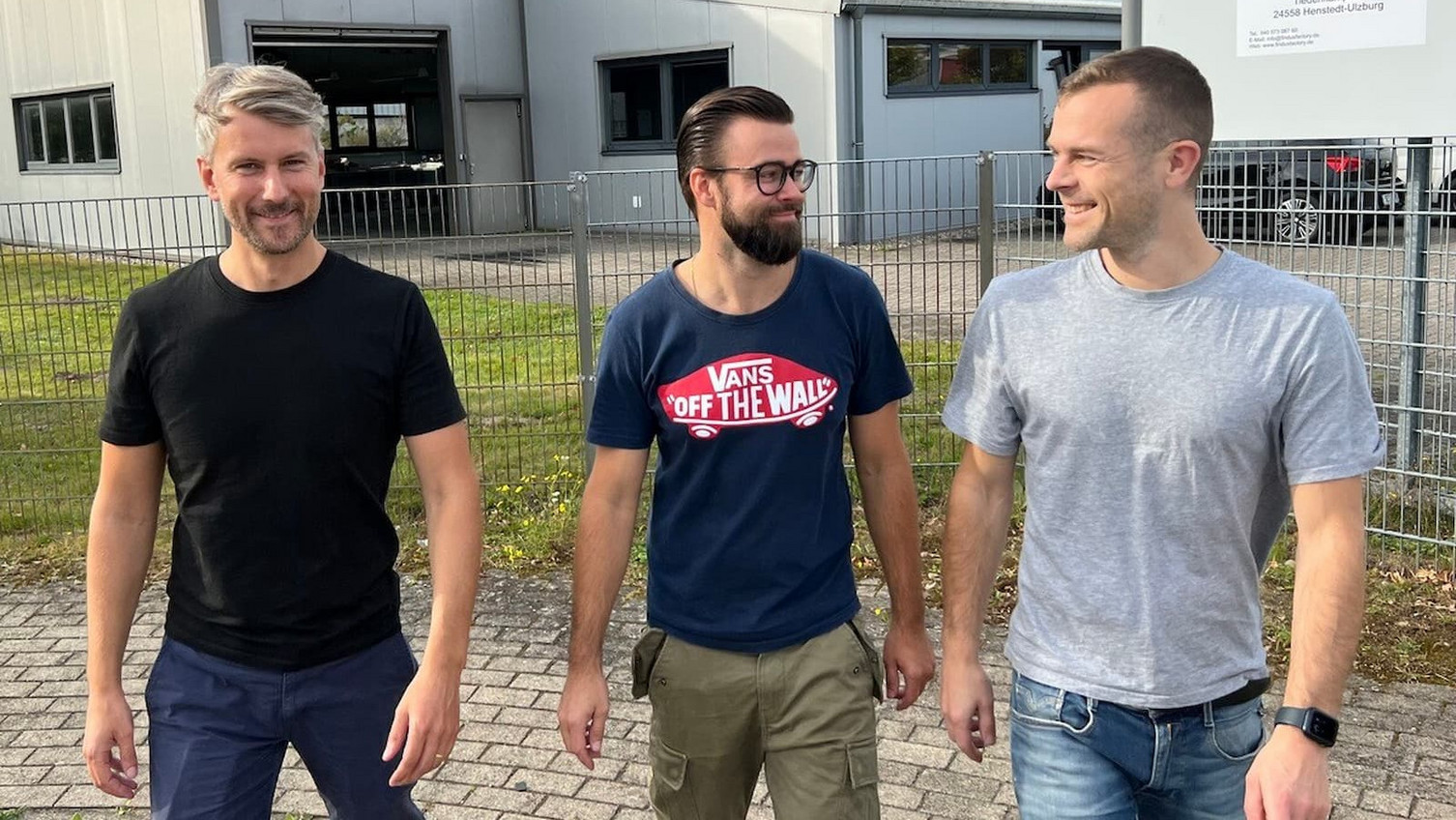Part-time MBA: Solving the skills shortage with automation
2024-01-09 Malte Voigt and Timo Schooff are graduates of the part-time Manufacturing Management programme at Leuphana University Lüneburg, Professional School, the predecessor of the MBA Digital Production Management. Earlier this year, they founded Findus Factory, a company that simplifies automation for small and medium-sized enterprises with a loading box for CNC machines.
CNC machines produce automatically. However, they are loaded manually and the finished workpiece must also be removed by a person. This is a monotonous and time-consuming task. Because of the shortage of skilled labour, it could be done by a robot: "However, robots are expensive to buy, complicated to set up and require a safety concept. Complex robot integration is not very practical, especially for small and medium-sized companies," explains Malte Voigt. The business economist and systems engineer is one of the founders of Findus Factory. The Hamburg-based company wants to make automation possible for small and medium-sized companies: "Our solution is a loading box that automatically loads and unloads the CNC machines and recognises different workpieces thanks to camera vision. The loading box is ready for use within 24 hours," explains Malte Voigt. He founded Findus Factory GmbH together with Timo Schooff and Helmut Gallenberger. The idea for the product was born out of necessity: "Our customers need to automate, otherwise they will be squeezed out of the market. Cost pressure from abroad is high. SMEs in particular need solutions that can be implemented quickly and that also simplify smaller production runs," explains Timo Schooff. The production engineer and trained industrial mechanic met his current business partner Malte Voigt during his part-time studies: "I wanted to continue my education in the technical field and deepen my management skills. I also wanted to expand my network," explains the family man. He had been planning to set up his own business for some time. He knew Helmut Gallenberger from his studies at the HAW. The three founders worked on their idea for two years: "We presented the charging box to a medium-sized entrepreneur when we were just starting out. He was enthusiastic and became our first customer," says Timo Schooff.
Malte Voigt and Timo Schooff studied production management at Leuphana University Lüneburg. In 2020, the course was restructured with a focus on digitalisation and became the MBA Digital Production Management. They see the reorientation of the course as positive: "AI and digitalisation have become indispensable in production. I wrote my master's thesis on the transformation to a data-driven company. In terms of content, the topic already fits into the new programme". Market data played a crucial role for the team in building the company: "We collect data to track market developments or analyse the distribution of CNC types and control types in Germany and Europe. This enables us to make better decisions about how to position ourselves in the market. Later, when we have more machines in the field, production and quality data will play a greater role for us, both as a source for improving our products and as a resource for our customers to optimise their processes. This is a very tangible added value that I took away from my studies," says Malte Voigt.Both have gained valuable knowledge for their start-up during their studies: "My understanding of production processes and methods has increased. We studied in small groups and there was good contact with lecturers and other students.Timo Schoof recommends the programme to anyone who wants to develop their entrepreneurial skills - even if they are not self-employed: "The programme doesn't teach dry material, but helps you develop your career. Companies are looking for people with initiative and ideas.
The part-time MBA Digital Production Management for engineers and business economists provides the full range of specialist knowledge that is important for managing modern industrial companies against the backdrop of global trends such as digitalisation. Topics such as Industry 4.0, Smart Factory, Supply Chain Management and Strategic Sourcing, Digital Factory, Sustainable Production or Lean Production are covered and combined with current business knowledge. The MBA programme provides students with the expertise they need to compete in the international marketplace. The programme starts again in April and applications can be submitted until 31 January. Prospective students can get advice on the course at the Information Day on 13 January 2024.


